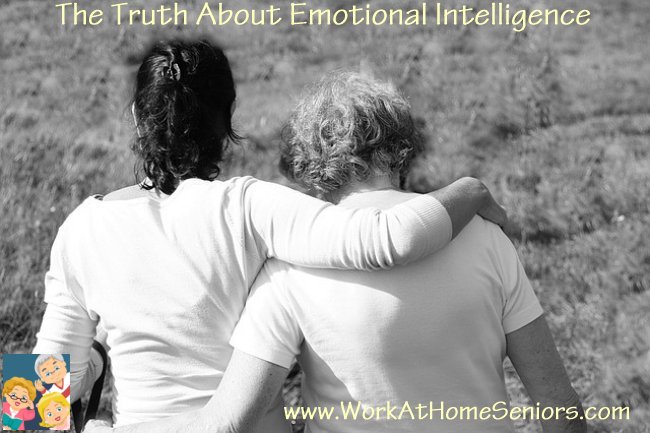The Truth About Emotional Intelligence

There is so much emphasis on emotional intelligence these days that it appears that people are suppressing their emotions and problems in an effort to “fit in,” to keep their jobs, and using “positive self-talk” to muscle through the rough spots in their lives.
Recently, a friend suffered enormous job stress during a time when his wife’s father was dying of cancer. Of course, quitting his job didn’t seem like an option during this difficult period, particularly since his wife returned to her parental home for many months to say good-bye to her dying father. That left him at home to take care of their children, pay the bills, and so on. Who can forge positively into a new job search with all that going on?
After his father-in-law passed away his wife returned home and he lost his job – as did many of his colleagues – and his wife decided she no longer wanted to remain married. What else could go wrong? OH! Of course! His father could be diagnosed with cancer: He was.
Now he is living a complete hell, with all of this turmoil, and two sweet children looking to him for stability. Is it any wonder that people are cracking under the strain?
He is all alone and he tries to be “emotionally together” but that only causes more harm than good. We (society), in our need for order and stability, don’t want people with all these problems in our lives. We don’t want them working in our office. They’re broken!
Well, the truth is, our (society) expectations around emotional intelligence, and together, full-functioning adults, is what is breaking them.
After spending three hours with him the other night, acknowledging his horrific circumstances, his emotional turmoil, and gave him permission to embrace it all. He’s not broken, he’s experiencing emotional pain and it needs to be expressed, embraced, and worked through (processed.) It’s not enough that he embrace it either. Community is required to surround, love, heal, and regenerate.
So, when we see hurting people, don’t look at them as broken people who haven’t got their act together. Look at them as someone who needs a bit of kindness, generosity, and loving support. Watch the power those simple things can have in their life.
Caveat: This does not condone people remaining disempowered victims for the rest of their lives. Our role is to embrace and still to empower, leaving the “wounded one” to take responsibility for their recovery. Embrace, love, and challenge.
